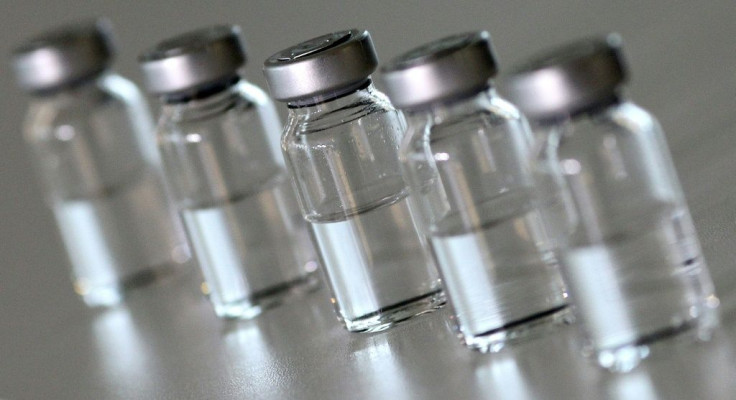Hope Meets Reality: Effective Vaccines vs. Their Public Acceptance

The hopeful vaccine news of late continues: Moderna announced on Monday that it will seek FDA emergency use authorization for its Covid-19 vaccine. Results from its 30,000-member trial showed that of 185 Covid-19 cases reported during the study, 174 of them were in the placebo group. Only 11 were in the group that received the vaccine, and none of those participants were severe cases.
Other vaccine contenders, Pfizer and its partner, BioNTech, filed for their emergency use authorization on Nov. 23. AstraZeneca and its partner, Oxford University, released preliminary data from its dosing trials that showed various degrees of efficacy, ranging from 62 to 95%. AstraZeneca said on its website that it is preparing documentation to submit to approval authorities worldwide that will allow emergency use authorization.
Those who received these vaccines instead of placebos had much milder cases of Covid-19, on average, when they did get the virus. The flu vaccine offers the same advantage; those who are vaccinated may still get the flu, but they tend to have fewer complications from it and less risk of hospitalization or death.
If the flu analogy holds true for the Covid-19 vaccines, it will be a double breakthrough: significantly better protection than expected, and a weakening of the virus’ effects even in cases that slip past the vaccine.
A PR problem
While the trial news has been well received, it’s how the public will look upon the vaccines that concerns some.
President-elect Biden’s Covid-19 advisory board member Michael T. Osterholm, an epidemiologist and director of the Center for Disease Research and Policy, told CBS This Morning that he’s optimistic about the vaccines’ effectiveness.
But he acknowledged that the country has a public relations problem: “We have done nothing to really reassure Americans what these vaccines are, what they will do, how they will work, and why they’re so important.”
What public health officials need to help everyone understand, he said, is that these vaccines will make all the difference between living or dying from the virus.
Some medical experts aren’t using words to bridge the understanding gap, they are using actions, like signing up for trials themselves.
A doctor volunteers
Kathryn Boling, MD, a primary care physician at Mercy Personal Physicians in Lutherville, MD, said this “PR problem” is one reason she decided to volunteer for a clinical trial.
“My patients were expressing fear about taking a vaccine because of the political climate,” she told Medical Daily . “They worried a vaccine would be pushed through when it wasn’t safe, just for political gain. I’m aware of the level of testing and the level of documentation and care that goes into these studies and I have faith in them.”
Dr. Boling decided that it would reassure her patients that it was safe if she was one of the early volunteers for a vaccine trial, and she hoped it would offer her protection from Covid-19.
Side effects
Dr. Boling warned that the numbers may not hold steady as time passes, since the vaccines’ effectiveness has been studied for months, not years—so figures over 90% may be overly optimistic. But even so, she said she believes they’re highly effective and worth taking as soon as possible.
She also cautioned that people should expect some side effects after the vaccines. Her trial consisted of two doses, and after the first shot, she had a sore arm. After the second, she experienced significant muscle aches and chills for fewer than 24 hours. She described the side effects as similar to shingles vaccines, which may affect some people more strongly than others.
She said she would advise her patients, “Make sure you have something unimportant planned for the next day just in case you have these side effects.” But even with some temporary side effects and even if the level of protection isn’t perfect, “Getting it is much more beneficial than not getting it,” she said.
What Doctors Say
The scuttlebutt around the office is pro-vaccine, Dr. Boling said. In a staff meeting, the topic of vaccine release and who will be first in line came up.
“A couple of the doctors were joking that they would like to elbow people out of the way—that’s how eager they are to have this. Most medical people want to get the vaccine.”
A Call for Patience
Even if Moderna and Pfizer get emergency use authorization, expect that most people will need to wait several months before a vaccine is available to them. There will not be enough produced to meet country-wide demand, so the first vaccines will go to those in the greatest need. The Centers for Disease Control and Prevention were meeting today to discuss distribution.
Health and Human Services Secretary Alex Azar has said his agency will make recommendations, but ultimately, state governors will determine where vaccines get distributed first within their states.
The Take-Away
Dr. Boling said she wants to make sure people understand that the good news is not a reason to loosen up restrictions. “Be very careful during these next few months,” she said, “We have a light at the end of the tunnel, but we're still in the tunnel.”
Jenna Glatzer is the author or ghostwriter of more than 30 books, including Celine Dion’s authorized biography.
Published by Medicaldaily.com



























